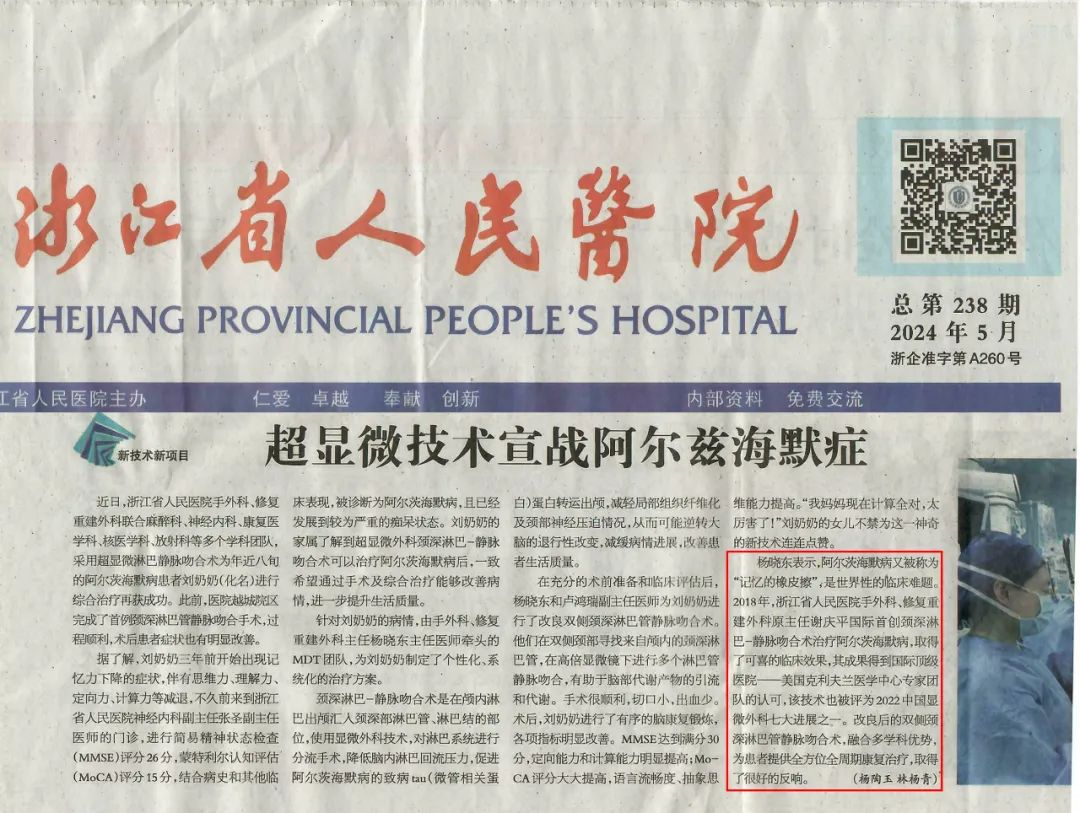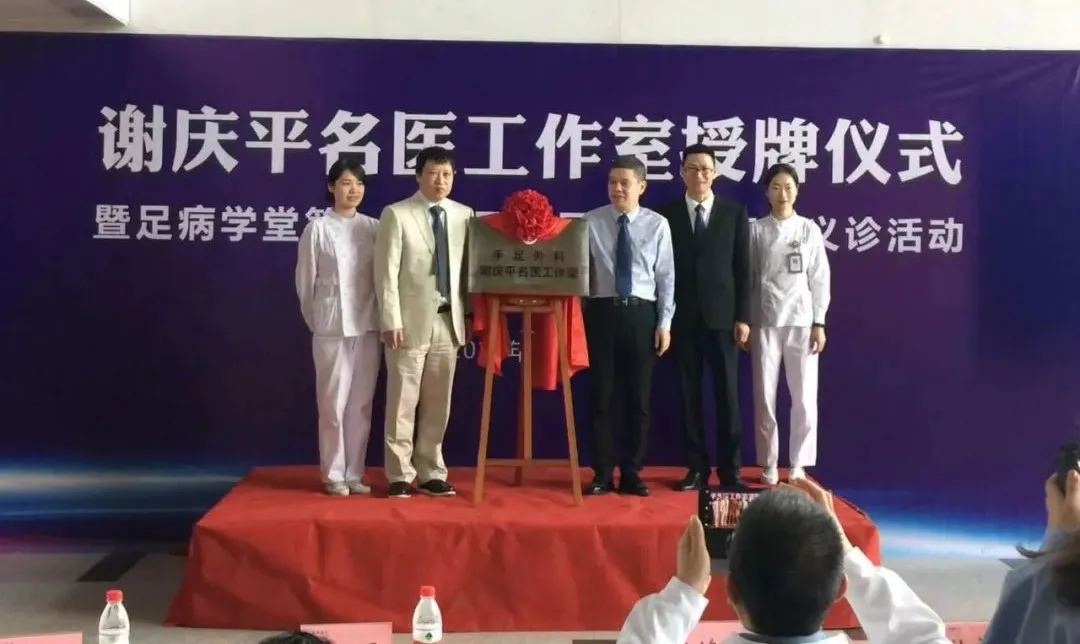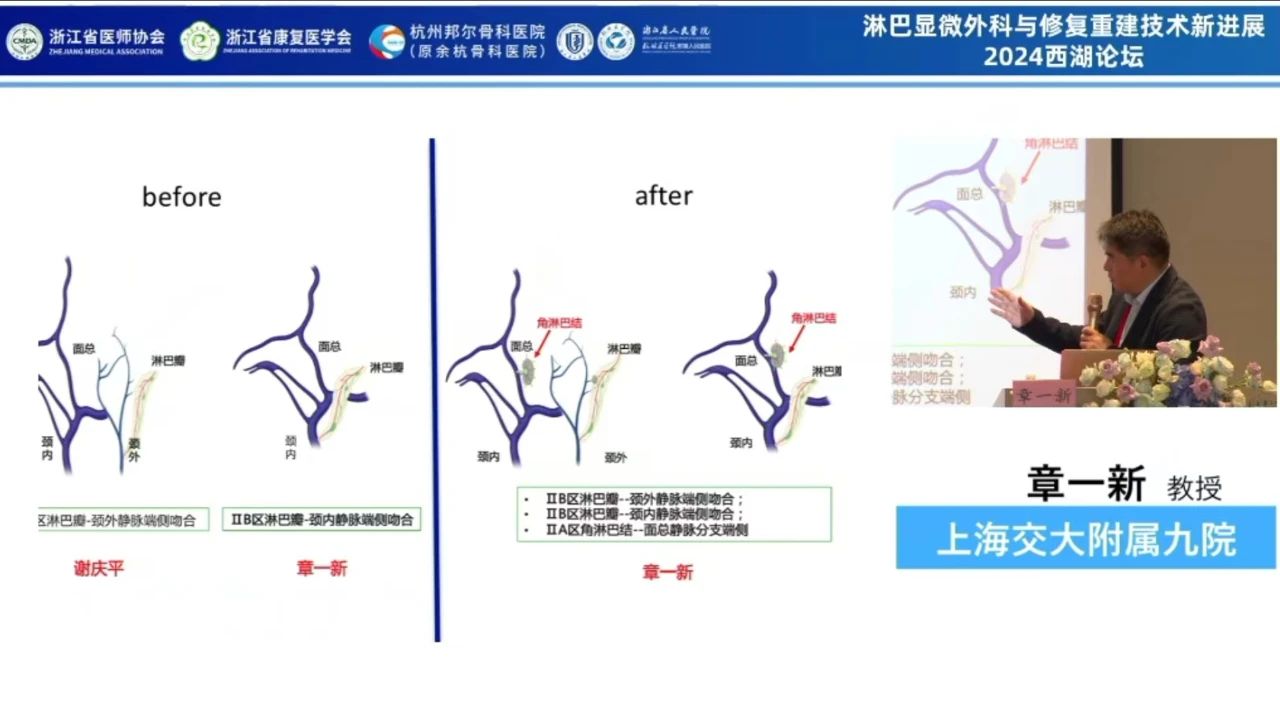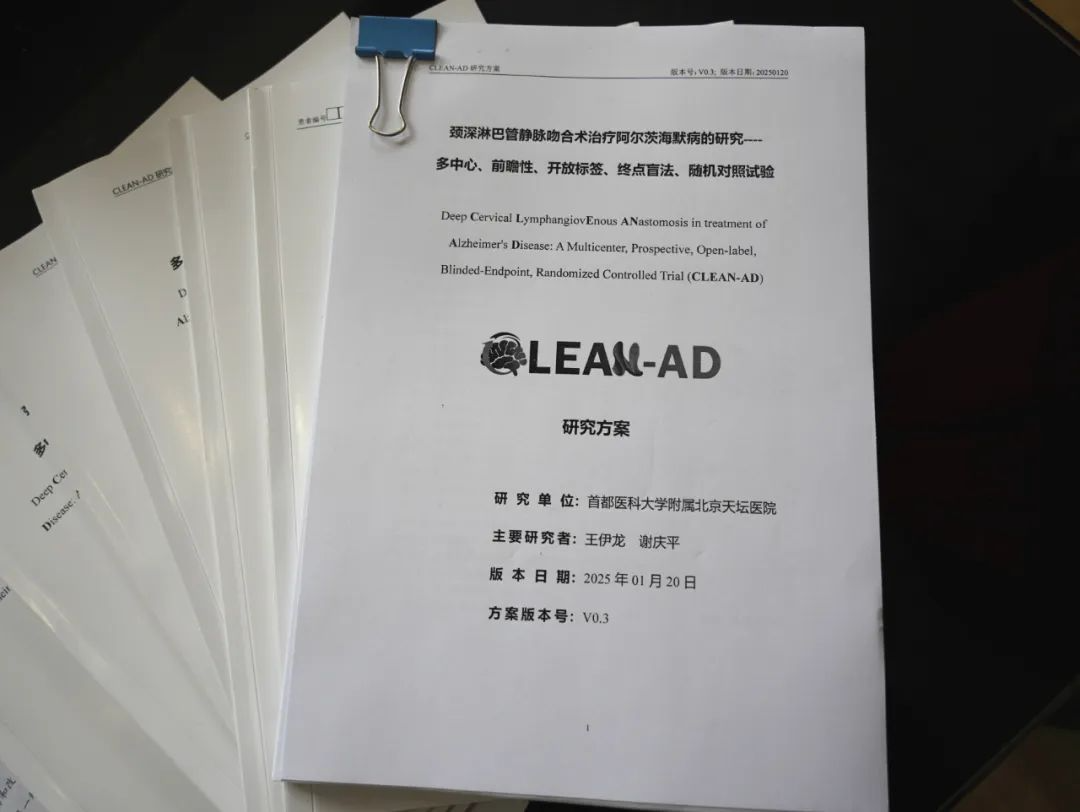Professor Xie Qingping from our hospital, as the pioneer of cervical lymphatic venous anastomosis, has been conducting related surgical research since 2018 to alleviate functional impairment symptoms in Alzheimer’s disease patients. To date, more than 200 patients have undergone this procedure. Some patients have shown promising improvements in their quality of life in the short- and long-term post-surgery. Below are follow-up reports from two patients who underwent cervical lymphatic venous anastomosis under Professor Xie’s care more than two years ago.
As awareness of cervical lymphatic venous anastomosis (CLVA) continues to grow, the public has gained a certain understanding of its role in alleviating functional impairment symptoms in conditions like Alzheimer’s disease. However, many families remain highly concerned about the long-term effectiveness of the procedure.
Professor Xie Qingping, the pioneer of CLVA, has been conducting surgical research since 2018 aimed at improving functional impairment symptoms in Alzheimer’s patients. To date, over 200 patients have undergone the procedure, with some experiencing significant improvements in their quality of life in both the short and long term. Below are follow-up reports from two patients who underwent CLVA under Professor Xie's care more than two years ago.
Mr. Jiang, aged 70, is a resident of Fuyang, Hangzhou. Prior to surgery, he exhibited symptoms such as memory decline, irritability, and emotional apathy. In November 2021, he underwent cervical lymphatic venous anastomosis performed by Professor Xie Qingping. It has now been four years since the procedure.
In July 2024, Mr. Jiang and his family participated in a public welfare event for Alzheimer’s disease in Hangzhou. At the event, Mr. Jiang communicated smoothly with those around him, with clear and logical language and expression. When responding to questions from other families, he mentioned that he did not feel much during the surgery itself and that the improvements did not happen immediately but gradually over the course of a year.
Mr. Jiang's son shared details about his father’s daily life over the past two years. He said that his father can now independently take the bus, go grocery shopping, refill prescriptions, and even enjoy a small drink occasionally, describing his overall condition as quite good. Mr. Jiang’s wife added that he is now able to remember important information like phone numbers and bank card PINs.
Mr. Cai, a 79-year-old resident of Zhuji, exhibited symptoms of Alzheimer's disease (AD) two years ago, including irritability, aggression, insomnia, memory decline, and emotional apathy. In 2022, after hearing that a patient with similar symptoms in a neighboring town experienced significant improvement following surgery performed by Professor Xie Qingping in Hangzhou, his family immediately brought Mr. Cai to Qiushi Hospital. In November 2022, Mr. Cai underwent cervical lymphatic venous anastomosis performed by Professor Xie. It has now been over two years since his discharge.
On November 4, 2024, Mr. Cai and his family returned to Qiushi Hospital for a follow-up visit. While waiting in the ward, Mr. Cai skillfully used his phone to take photos of the hospital’s display boards featuring Professor Xie. During the follow-up consultation, he demonstrated quick thinking, excellent calculation skills, and the ability to promptly and accurately recall the names and workplaces or schools of his son, wife, and even several grandchildren. His family reported that Mr. Cai has improved significantly compared to before, and in many ways, he is now indistinguishable from a typical elderly individual.
The principle of cervical lymphatic venous anastomosis (CLVA) lies in using super-microsurgery to directly connect the lymphatic vessels draining from the brain to the veins in the neck. This facilitates rapid drainage of intracranial lymphatic fluid, enabling the removal of beta-amyloid and tau proteins from the brain. By doing so, the procedure aims to slow disease progression, alleviate functional impairment symptoms, and improve the patient’s quality of life.
Since 2018, Professor Xie Qingping and his team have performed bilateral CLVA on over 200 Alzheimer’s disease (AD) patients based on this principle. Their work has provided the medical field with a novel surgical option for managing AD, earning wide recognition both within and beyond the medical community. Under Professor Xie’s guidance and through academic exchanges, this technique has gradually been adopted and implemented by more professionals, contributing to its broader application and dissemination.

Zhejiang Provincial People's Hospital introduced Professor Xie Qingping in 2018
The first cervical lymphatic venous anastomosis

In 2019, Xie Qingping Famous Doctor Studio was awarded the license to share LVA experience with Zheng Youmao and other peers
 At the West Lake Forum in 2024, Professor Zhang Yixin of Shanghai Ninth Hospital introduced innovative ideas based on Professor Xie Qingping's surgical plan
At the West Lake Forum in 2024, Professor Zhang Yixin of Shanghai Ninth Hospital introduced innovative ideas based on Professor Xie Qingping's surgical plan
Several prominent experts in the field have spoken highly of Professor Xie Qingping's innovative surgical treatment. Professor Luo Jianhong, a renowned neurologist and former Vice President of Zhejiang University, remarked:"This is indeed a highly creative and innovative therapy. Based on current research on the brain's lymphatic system, improving the lymphatic outflow from the brain holds great potential for alleviating related neurological disorders. I look forward to this clinical research yielding encouraging results and bringing benefits to Alzheimer's disease patients and their families."
 In March 2024, Professor Li Qingfeng, an expert with outstanding contributions from the Ministry of Health, introduced the academic progress of Professor Xie Qingping's team
In March 2024, Professor Li Qingfeng, an expert with outstanding contributions from the Ministry of Health, introduced the academic progress of Professor Xie Qingping's team









